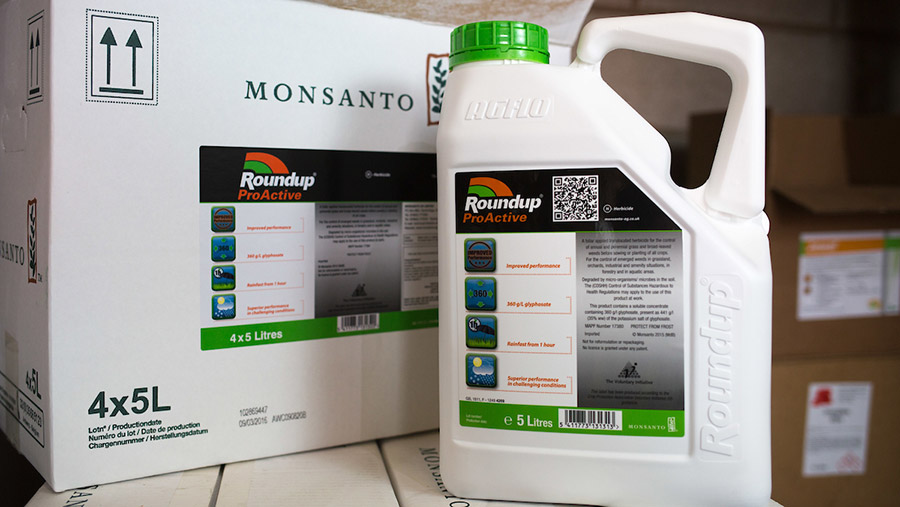Bayer ordered to pay $2bn in third Roundup trial
 Roundup was originally owned by Monsanto, which was bought by Bayer in June 2018 © Tim Scrivener
Roundup was originally owned by Monsanto, which was bought by Bayer in June 2018 © Tim Scrivener A US court has ordered Bayer CropScience to pay more than $2bn in damages after a jury found the company’s Roundup weedkiller caused a couple’s cancer.
Californian couple Alva and Alberta Pilliod claimed that exposure to the glyphosate-based weedkiller caused them both to develop cancer.
A jury agreed on Monday (13 May) and awarded them $2.055bn (£1.59bn) in total.
See also: US environment agency says glyphosate is not a carcinogen
In court, the couple, who are both in their 70s, said they had been spraying Monsanto’s Roundup herbicide for weed control on their three properties for more than 30 years.
Both developed non-Hodgkin’s lymphoma, a type of cancer that develops in the lymphatic system.
Alva was diagnosed in 2011 and Alberta in 2015.
Both have undergone chemotherapy and are now in remission.
It is the third consecutive Roundup cancer case in California that Bayer, which acquired Monsanto for $63bn (£48.64bn) last year, has now lost.
More than 13,400 claimants have filed similar lawsuits against Monsanto.
In March 2015, glyphosate was classified as a “probable carcinogen” by the World Health Organization.
But the US Environmental Protection Agency says it is “unlikely to cause cancer in humans”.
Bayer to appeal
Bayer issued a statement after the verdict, saying it was “disappointed” and would appeal.
“[It] conflicts directly with the US Environmental Protection Agency’s interim registration review decision released just last month, the consensus among leading health regulators worldwide that glyphosate-based products can be used safely and that glyphosate is not carcinogenic, and the 40 years of extensive scientific research on which their favourable conclusions are based.
“We have great sympathy for Mr and Mrs Pilliod, but the evidence in this case was clear that both have long histories of illnesses known to be substantial risk factors for non-Hodgkin’s lymphoma [NHL], most NHL has no known cause, and there is not reliable scientific evidence to conclude that glyphosate-based herbicides were the ‘but for’ cause of their illnesses as the jury was required to find in this case.”
Glyphosate’s licence in the EU is valid until 15 December 2022.

